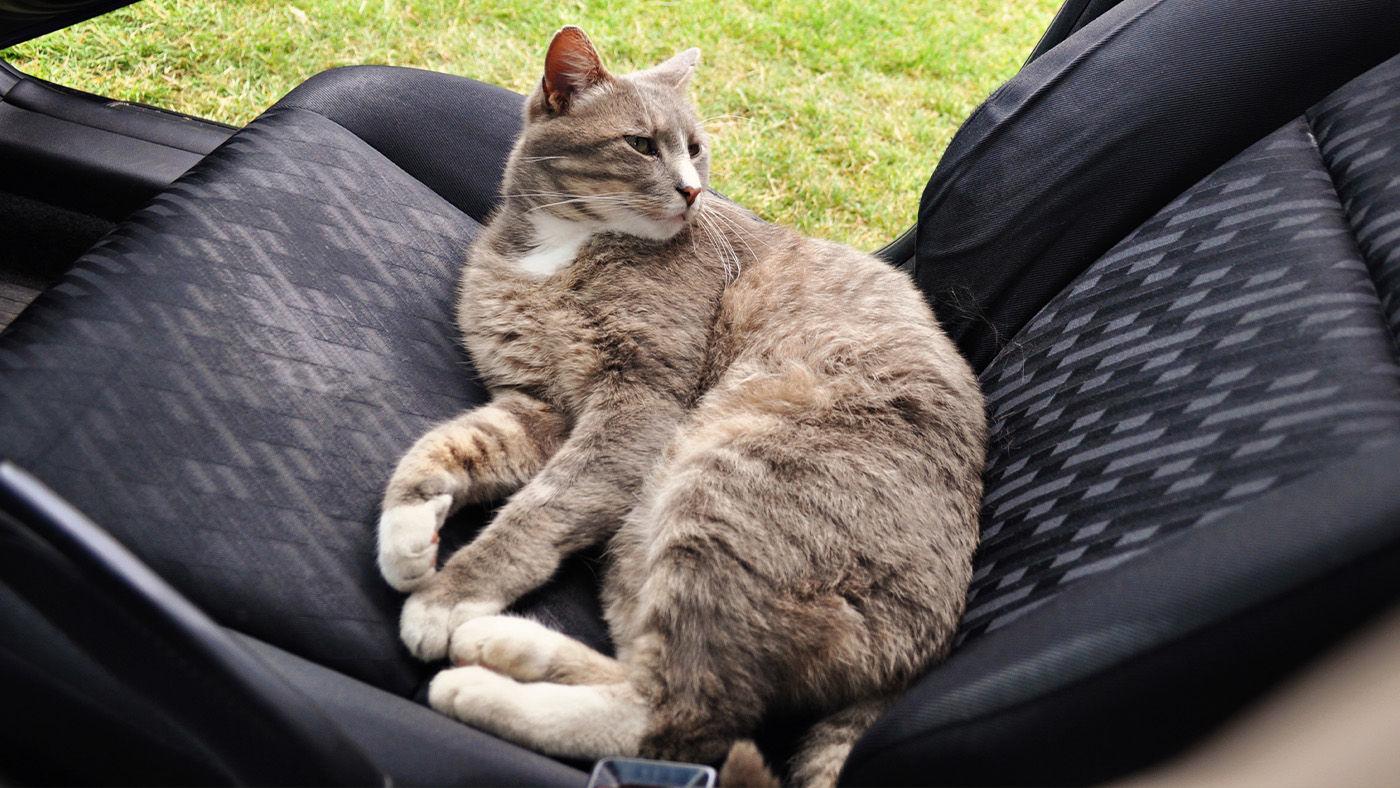Pregnant women and cat litter: what are the dangers?
The combination of pregnant women and cat litter can be a health hazard; learn how to minimise the risks.
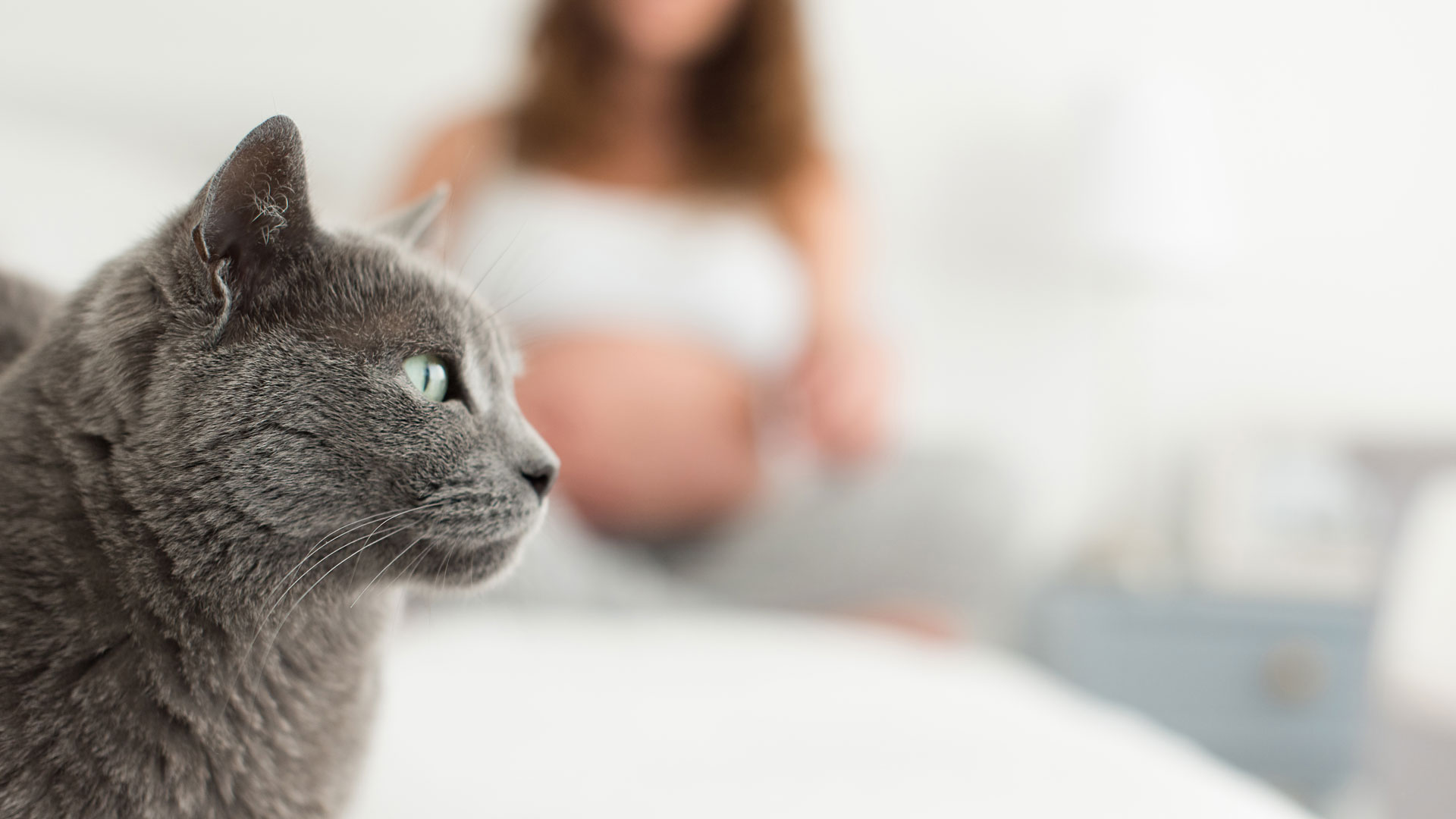
Are pregnant women and cat litter a risky combination? If you're pregnant and you own a cat, you may have heard that your beloved feline can put you in danger of contracting an infection that could be hazardous to your baby. That's not entirely true; you can still stroke and cuddle your cat without any risk of picking up anything unpleasant.
However for all their adorable fluffiness, cats can be toxic little blighters, as many people who've had a cat bite that's become infected can attest. And many cats are equally toxic at the other end, which means that whenever you clean out your cat's litter tray you can be putting yourself at risk of an infection called toxoplasmosis, even if you've invested in the best cat litter.
For most people, toxoplasmosis doesn't add up to very much of a danger at all. However, the mix of pregnant women and cat litter is potentially a much bigger red flag, and something you need to take precautions around. Here's what you need to know.
- How to get a cat to use a litter box
- Best self-cleaning cat litter boxes
- 13 ingenious ways to hide the litter box
- How often to clean litter box
Cats and toxoplasmosis
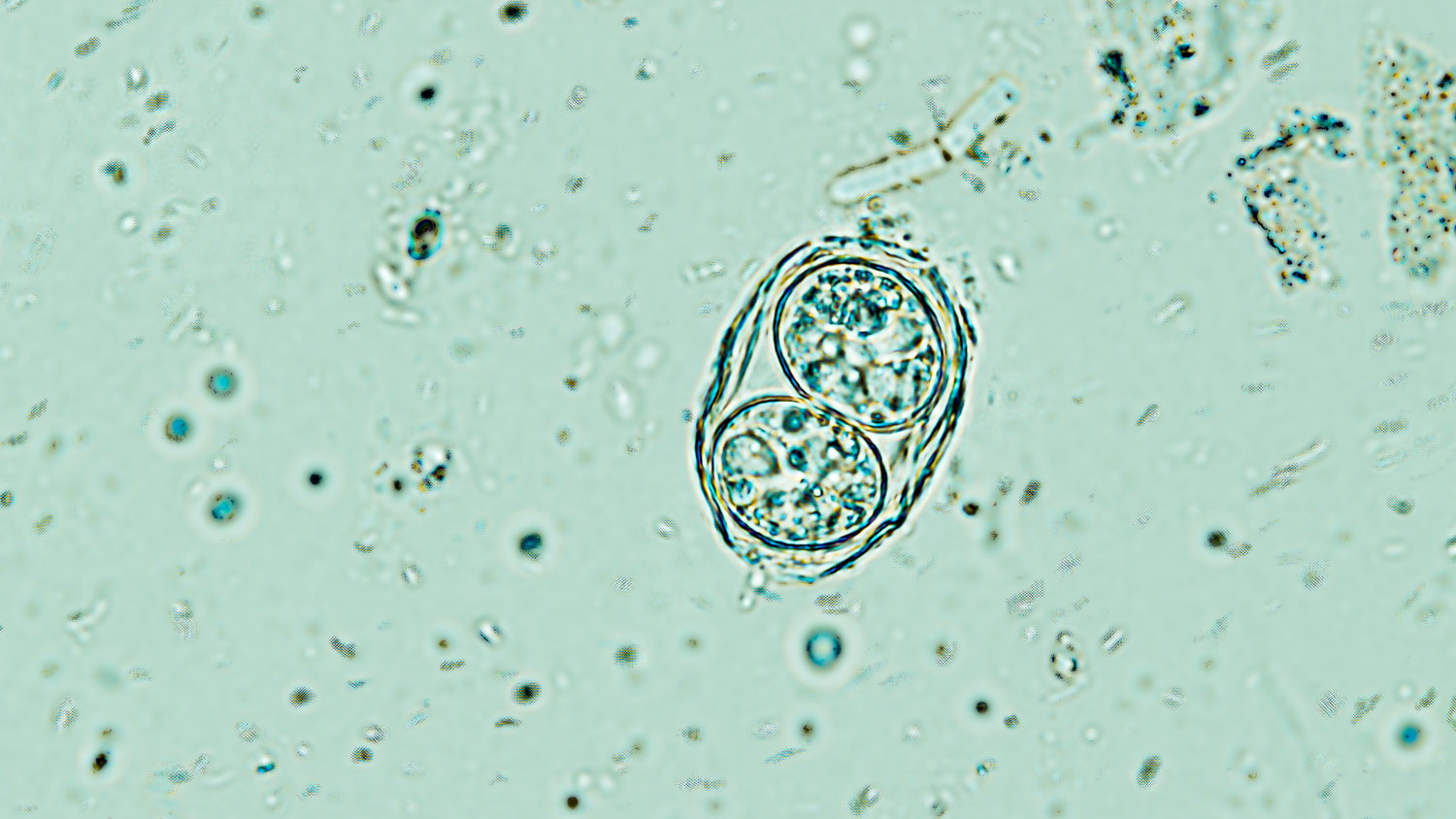
What is toxoplasmosis? In short it's a parasitic infection caused by the Toxoplasma gondii microbe, and it's one that usually caught from contaminated food: eating raw or undercooked meat, or cured meats that haven't been cooked. You can also catch it from handling raw meat and not washing your hands afterwards, and from handling pregnant sheep or lambs.
However another way to catch toxoplasmosis is from your cat. If you have an outdoor cat that's a hunter, there's a chance that it carries the toxoplasmosis microbes, and that can become a problem when you clean its litter tray. Basically if you accidentally touch contaminated cat poo and subsequently touch your mouth or food without having washed your hands, you're at a risk of contracting toxoplasmosis.
Toxoplasmosis: the risks
As we've mentioned, the risks from toxoplasmosis for most people are pretty much negligible. The majority of people who become infected will exhibit no symptoms at all, while some people will get mild flu-like symptoms such as a high temperature, tiredness, aching muscles and a sore throat. These symptoms usually clear themselves within about six weeks, and whether you've had symptoms or not your immune system will kick in and you won't catch toxoplasmosis again.
However for pregnant women the risks are higher. Toxoplasmosis can cause miscarriage in some cases, and it's also capable of causing severe complications if the infection spreads to your baby, particularly if you catch it early in your pregnancy.
Tommy's, a charity specialising in research into the causes of miscarriage, stillbirth and premature birth, points out that the chances of getting a toxoplasma infection for the first time during pregnancy are very small. "Over a five-year period (2008-2012), there were only 190 recorded cases of pregnant women diagnosed with the infection in the UK (although there may have been more)," it says. Furthermore, Tommy's notes that in many cases the infection won't spread to the baby: "It's estimated that only 1 in 10,000 babies is born with toxoplasmosis in the UK."
So the odds of catching it are slim; however the results can be severe. Some babies born with toxoplasmosis may display symptoms of a severe infection, such as eye damage, jaundice or pneumonia. Most, though, will seem healthy at birth but may develop health problems later in life.
How to safeguard against toxoplasmosis
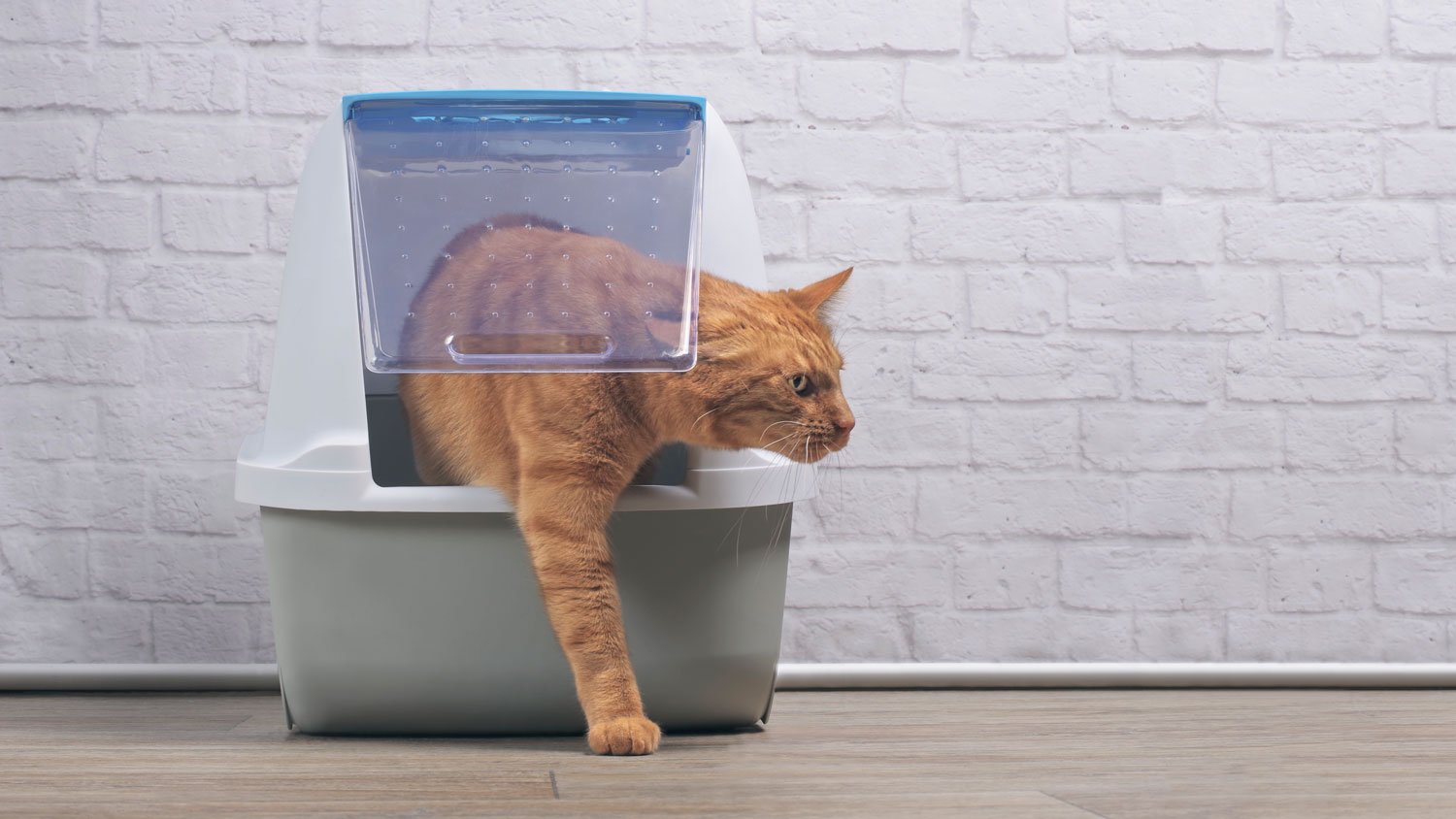
While the numbers show that you're unlikely to catch toxoplasmosis from your cat's litter tray, if you're pregnant then you won't want to do anything that could risk the health of your unborn child, no matter how long the odds may be. So, what can you do to keep yourself and your baby safe?
The most certain approach is to get someone else to clean the cat's litter tray. That way you can be sure you won't be coming into contact with contaminated cat poo, and as an added bonus you'll be spared the hassle of cleaning out a litter tray for a good few months; a double win!
Sadly that may not be an entirely practical approach for some, but that's okay because with a little care you can still minimise the risks by wearing disposable gloves whenever you clean out the litter tray, and of course wash your hands thoroughly afterwards. (If there's been one positive thing about this pandemic, it's that we've all become a lot more aware of the benefits of regular hand-washing.)
Another way to prevent toxoplasmosis infection is to go the extra mile in keeping the cat's litter tray clean. The Toxoplasma gondii microbe can take a couple of days to become active after it hits the dirt, so to speak, so if you make sure to wash the litter tray with hot water daily, you'll seriously reduce any risk of infection. To ensure you're doing it properly, see our guide to how to clean litter boxes.
Do bear in mind, though, that it's not just litter trays that carry the risk of toxoplasmosis. If you're a keen gardener, wear gloves whenever you're working in your flowerbeds, because you can never be sure what you'll come across buried under the surface. And if you have kids and a sandpit, keep it covered up when it's not in use, because you can be sure that local cats will decide that it's a giant luxury litter tray at some point or another.
What to do if you think you've been infected
For starters, don't panic. As we've mentioned, the number of pregnant women infected by toxoplasmosis is statistically tiny. But to be on the safe side, contact your GP surgery. They may give you blood tests to see if you've been infected, and if that does turn out to be the case then there may be more tests in order to figure out the risk of toxoplasmosis being passed on to your baby.
There are various ways that treatment – for both you and your baby – may progress depending on how far along you are with your pregnancy; this guide to toxoplasmosis and pregnancy from Tommy's will give you a comprehensive overview of everything you need to know.
Conclusion
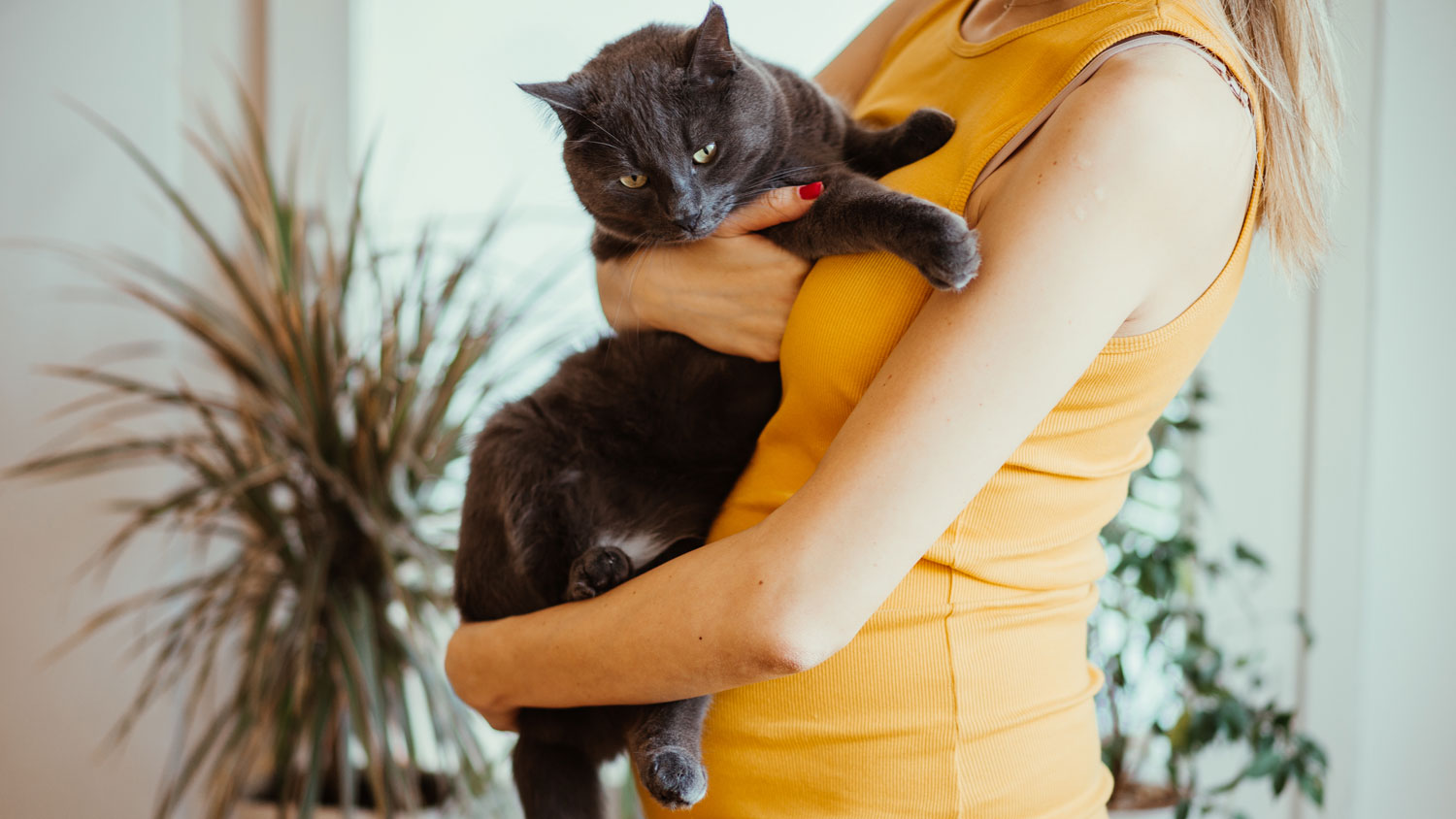
Toxoplasmosis is a very real danger for pregnant women, and while the chances of catching it from your cat's litter tray are very small, you should still take precautions to minimise the risks to you and your baby. By following the simple rules outlined above you'll be able to safeguard yourself against infection, but remember to contact your GP if you're at all worried that you may have contracted toxoplasmosis.
PetsRadar Newsletter
Get the best advice, tips and top tech for your beloved Pets
Jim is a writer, performer and cat-wrangler based in Bath, who last year adopted a pair of sibling rescue cats who turned out to be effectively feral, and has spent a lot of time since then trying to get them accustomed to people (some success) and each other (ongoing project).

